Why Choose Dubai for Your
Investments?
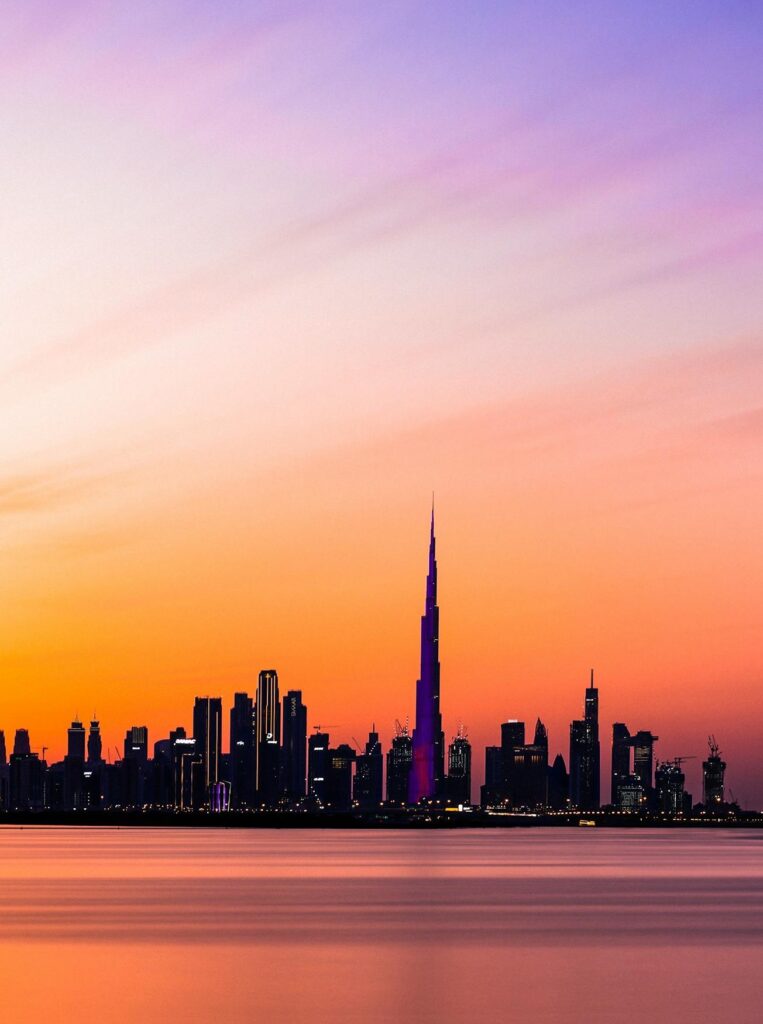
Dubai, a one-of-a-
kind metropolis in the
United Arab Emirates.
Dubai, renowned for its luxury lifestyle, iconic landmarks like the Burj Khalifa and Burj Al Arab, and diverse population, is a top global destination. With attractions such as the Dubai Fountain, Miracle Garden, and the Dubai Mall, it offers a wealth of experiences for visitors.
-
The Palm Jumeirah, considered the most iconic site
globally, enhances the city's appeal. -
For those interested in Dubai real estate, the city's
vibrant tourism sector adds to its allure.
Investing in Dubai offers several advantages
such as a favorable tax regime and a continuous flow of tourists driving rental demand. Explore why investing in Dubai real estate is a smart decision and find out how to invest in this thriving city. Enjoy the ideal combination of tourism and property investment prospects in Dubai, making it a top choice for international investors.
The top 5 highest performing areas
in Q4 of 2024
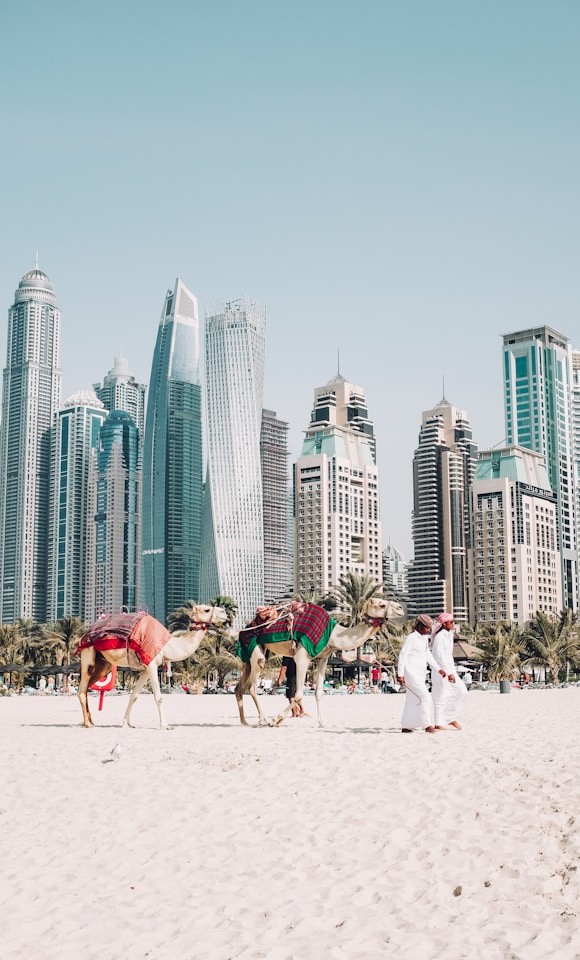
Beachfront
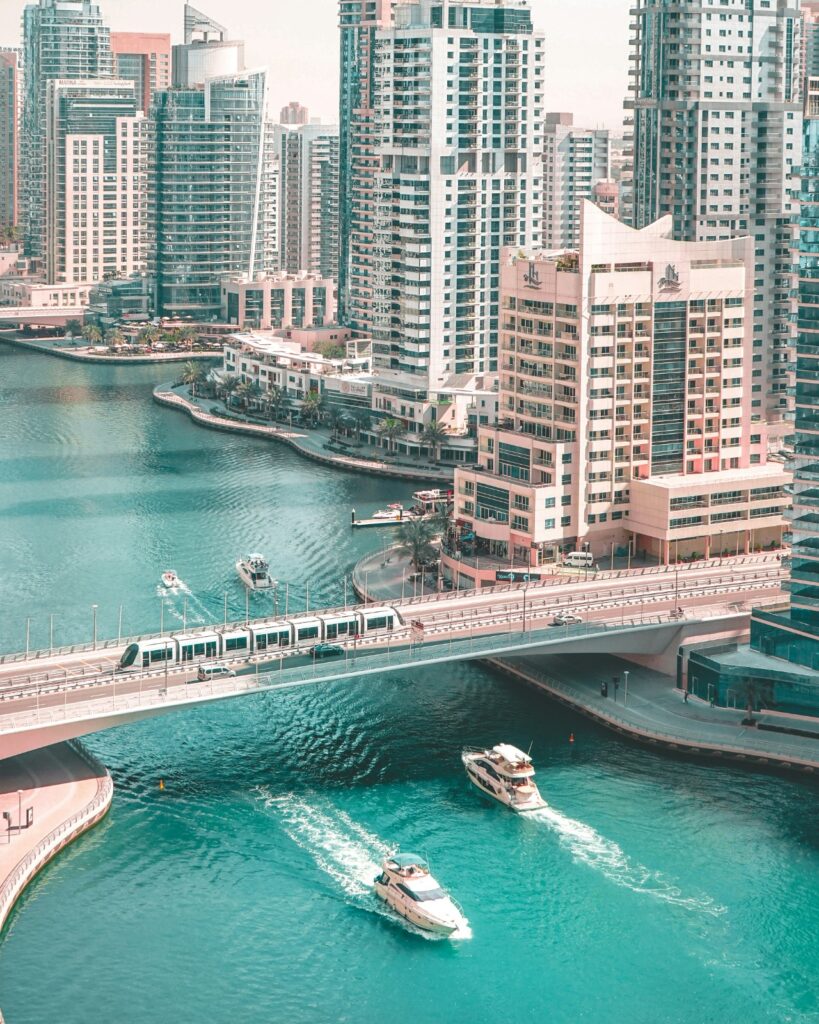
Dubai Marina
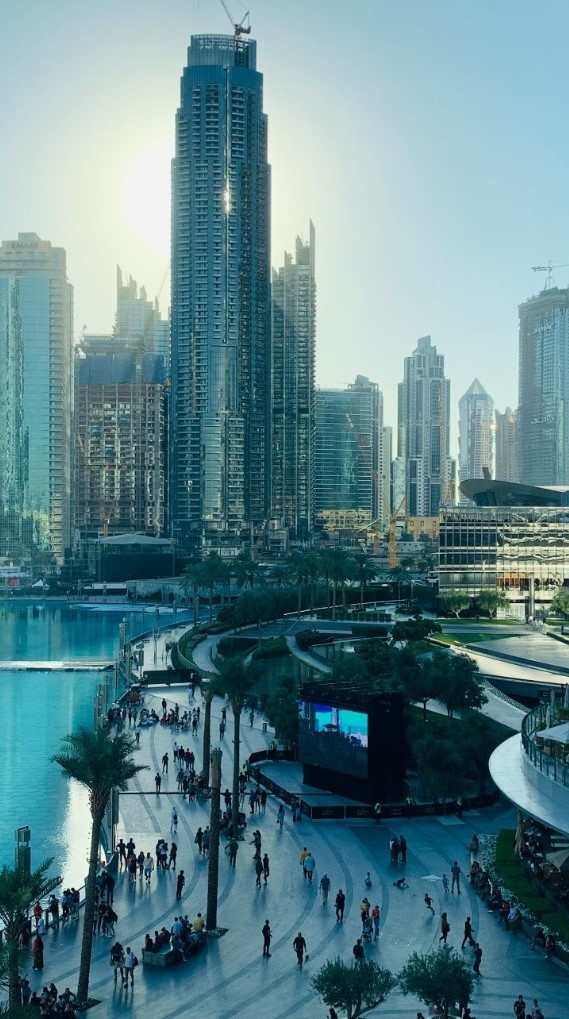
Business Bay
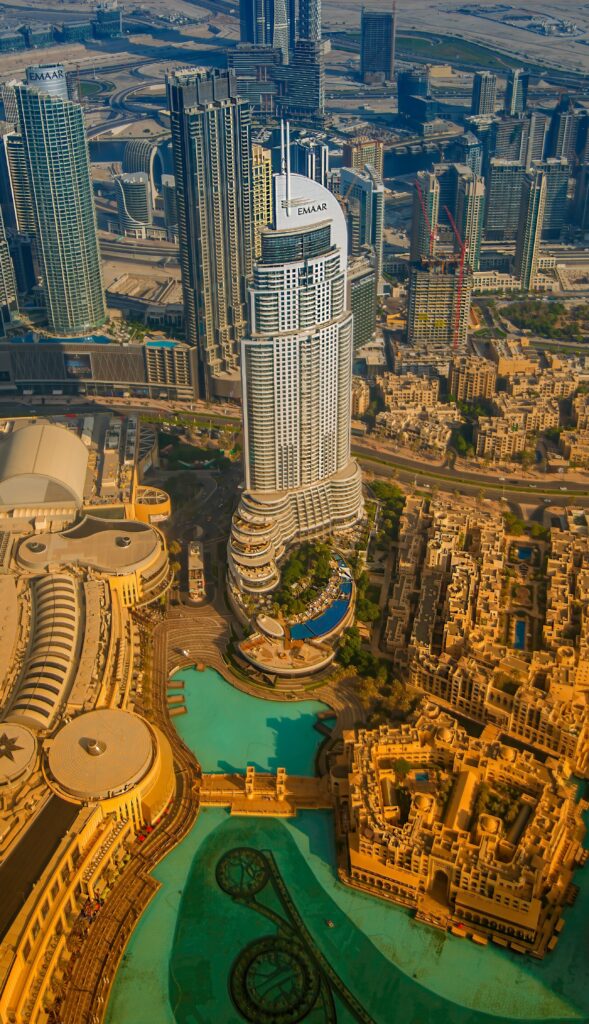
Downtown Dubai
Is Dubai a smart choice for investment?
Definitely.
- The real estate market in Dubai
Dubai offers competitive property prices and tax advantages, making it attractive to international investors. With a growing expat population and a stable economy, the city provides an inclusive lifestyle. Wealthy individuals are investing in Dubai, solidifying its reputation as a prime investment hub.
- Dubai's prime location and outstanding connectivity
With Al Maktoum Airport set to become the largest globally, Dubai's visitor influx is expected to grow. The city offers strong capital growth and excellent rental returns, boosted by demand. Dubai's Golden Visa program further enhances its appeal as a real estate investment hub. Our expert guidance can help you navigate the property process seamlessly.
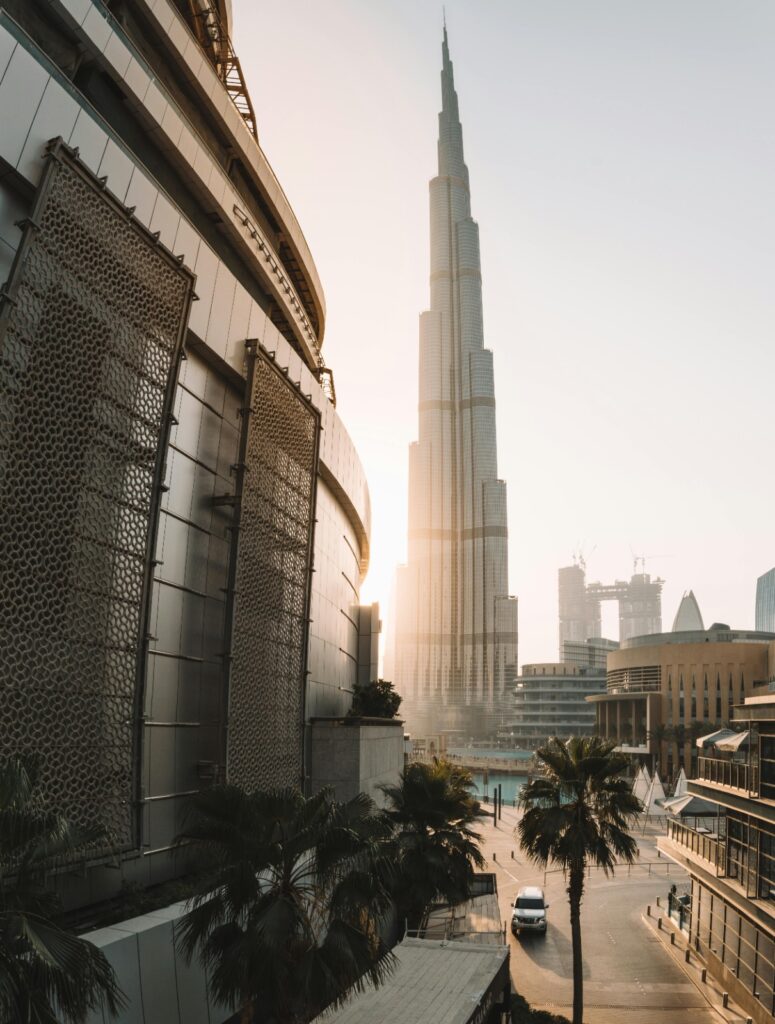
Benefits of Investing
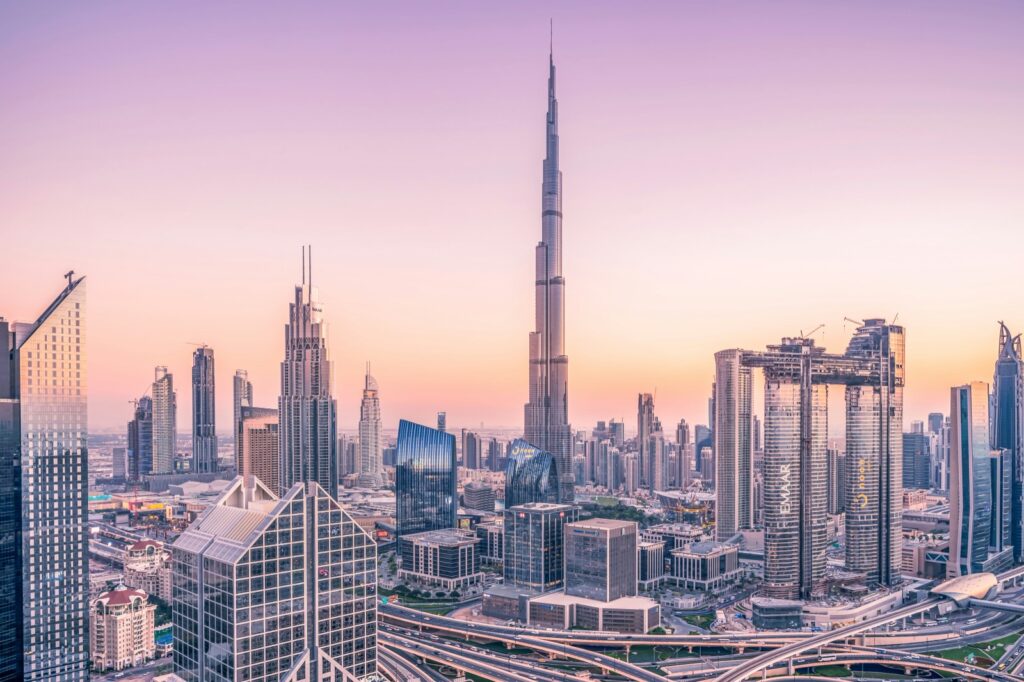
Strong Demand
Dubai's real estate market is growing rapidly due to a rising population and booming tourism, with the population expected to reach 5.9 million by 2040. This growth creates high demand for residential and commercial properties, and limited supply presents strong investment opportunities for solid returns.

Tax-Free
Investment
Dubai’s tax exemptions make it a top destination for investors, attracting high-net-worth individuals and boosting its property market appeal. This growth enhances the appeal of Dubai's property market for those seeking a tax-free investment environment.

A Diversified
Economy
Dubai’s diverse economy, driven by real estate, tourism, manufacturing, finance, and AI, ensures steady growth and demand for properties, making it an attractive investment destination. These strong economic foundations ensure steady demand for residential and commercial properties.

Stable Exchange
Rate
Dubai's stable exchange rate, with the AED to USD rate being one of the most reliable, ensures consistent growth and supports property investments. This financial stability and innovation make investing in Dubai real estate both attractive and safe.
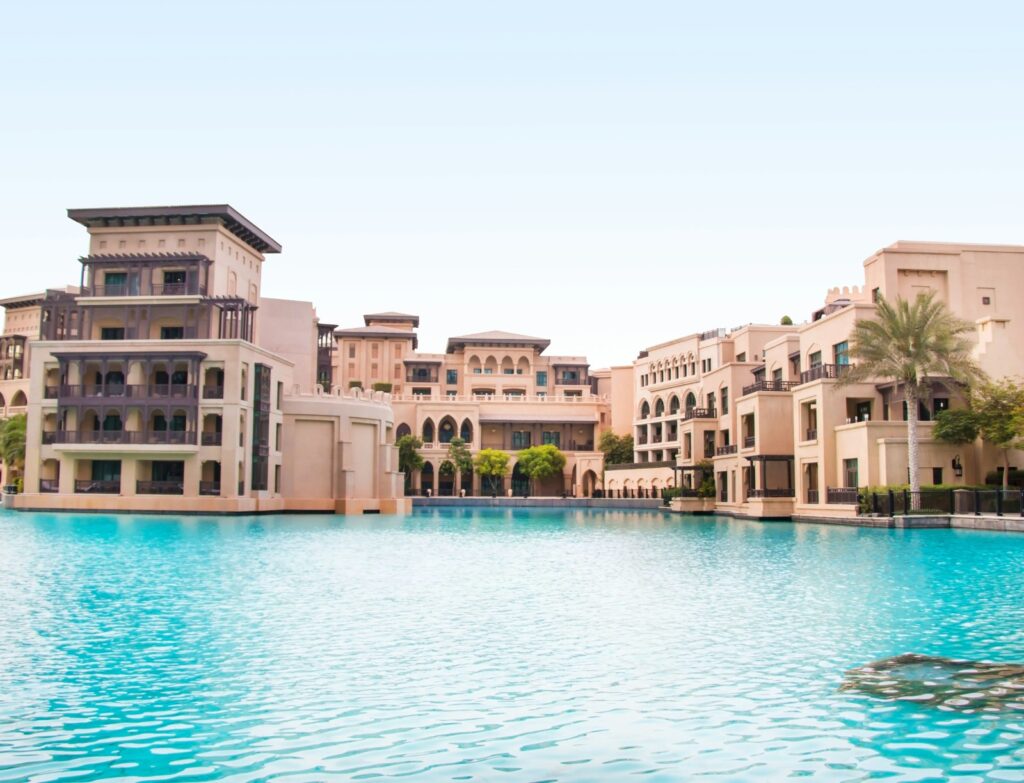
Welcoming
Atmosphere
Dubai’s diverse, expat-friendly environment and widespread use of English make it an attractive real estate investment destination for global investors, including those from the USA and Canada.
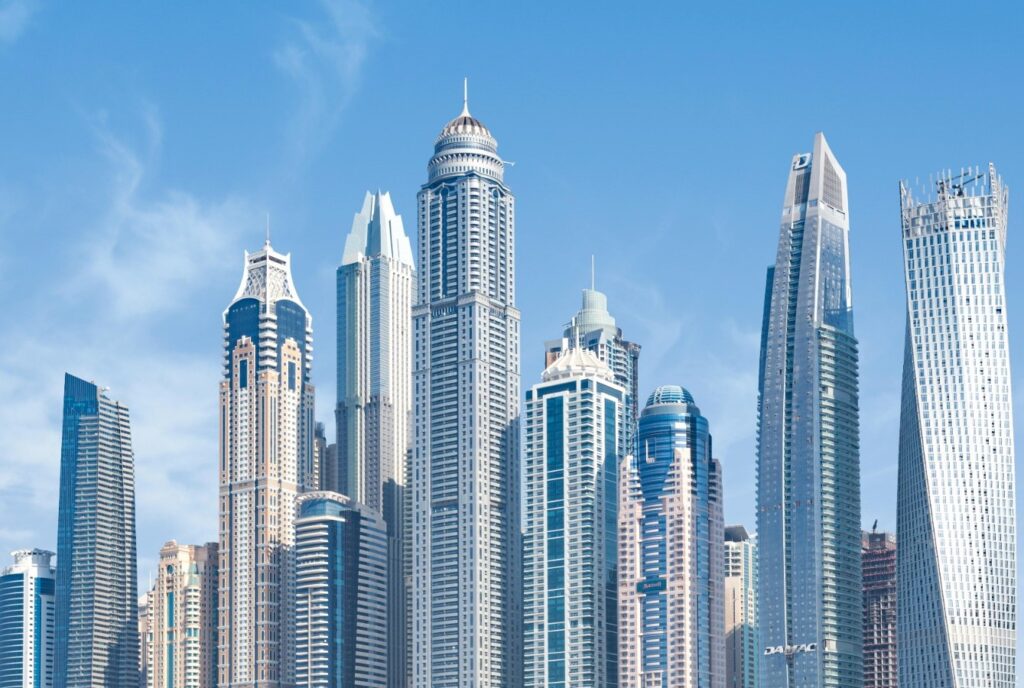
Investment Security
Dubai offers strong investor protection through regulations by DLD and RERA, ensuring transparency, financial stability, and project completion, making real estate investment secure and attractive.
FAQs
Understanding the laws, requirements, and processes of purchasing property in Dubai is crucial for making a safe and informed investment.
Yes, foreign investors can purchase property in Dubai. The city allows non-residents to buy real estate in designated freehold areas, offering a range of residential, commercial, and mixed-use properties. Dubai’s favorable laws, tax exemptions, and transparent regulations make it an attractive market for international buyers.
The UAE Golden Visa is a long-term residency program introduced by the United Arab Emirates to attract skilled professionals, investors, entrepreneurs, and talented individuals from various sectors. Unlike traditional work visas, the Golden Visa offers a more stable and long-term residency option in the country, which is typically issued for 5 or 10 years and is renewable.
Here are some of its key advantages:
1. Long-Term Residency
- The Golden Visa allows the holder to live, work, and study in the UAE without the need for a local sponsor.
- It offers residency for up to 10 years, which is much longer than traditional visas in the UAE.
2. Stability and Security
- The visa provides greater stability as it is not tied to a particular employer or job.
- Holders don’t have to worry about residency renewal as long as they meet the criteria.
3. Business Opportunities
- Entrepreneurs and investors benefit from incentives to establish businesses or make investments in the UAE without needing a local partner.
- The UAE's strategic location also allows Golden Visa holders to access lucrative business opportunities in the Middle East, Africa, and Asia.
4. Access to Healthcare and Education
- The UAE provides world-class healthcare and education systems, and Golden Visa holders can access these benefits, which might otherwise be more expensive or exclusive.
5. Property Ownership
- Certain categories of Golden Visa holders can purchase property in designated areas in the UAE, even if they don’t hold UAE citizenship.
6. Family Benefits
- The visa can be extended to immediate family members, including spouses, children, and in some cases, parents.
- This makes it an attractive option for those looking to relocate with their family.
7. Tax Benefits
- The UAE has a tax-friendly environment, with no personal income tax, which can be an advantage for high-income professionals and business owners.
8. No Need for Local Sponsorship
- Unlike other visas in the UAE, which are tied to an employer or sponsor, the Golden Visa allows holders to remain in the country without relying on a local sponsor.
9. Ability to Travel Freely
- Golden Visa holders can travel in and out of the UAE without needing to worry about visa issues, making it easier to maintain a flexible lifestyle.
10. Enhanced Prestige and Global Mobility
- Holding a Golden Visa can increase your global mobility and status, as the UAE is one of the world’s most business-friendly and luxurious destinations.
Eligibility Criteria
The Golden Visa is available to various categories of people, including:
- Investors in the UAE economy or property market.
- Entrepreneurs with promising business ideas or existing companies.
- Highly skilled professionals in fields like science, technology, medicine, and engineering.
- Outstanding students and top graduates.
- Humanitarian workers and other categories.
Each of these groups must meet specific criteria to qualify for the Golden Visa.
Overall, the UAE Golden Visa provides numerous advantages for those seeking long-term residency in one of the world’s most dynamic and rapidly growing regions.
Yes, it is possible for foreign investors to get a mortgage in the UAE, but there are some important considerations and criteria to keep in mind. Foreign investors, especially those who are not residents of the UAE, can access financing options for property purchases in the country. However, the terms and eligibility can vary depending on several factors such as nationality, the type of property, and the lender's policies.
1. Eligibility for Foreigners
- Non-Residents: Foreign nationals who are not UAE residents can still apply for a mortgage, although banks may have stricter requirements for them.
- UAE Residents: Foreign residents (expats) usually have more favorable terms for mortgages compared to non-residents.
2. Loan-to-Value (LTV) Ratio
- The LTV ratio is the percentage of the property value that can be financed through the mortgage. For non-resident foreigners, banks typically offer a lower LTV compared to UAE residents.
- For non-residents: LTV is often limited to around 50% to 60% of the property value.
- For UAE residents: LTV can be higher, ranging from 70% to 80% or more, depending on the lender and applicant’s profile.
3. Interest Rates
- Interest rates for foreign investors may be slightly higher than those offered to residents, as non-residents may be considered higher risk by lenders.
- Fixed or variable rate mortgages are available, and rates can vary between 3% and 5%, depending on the bank and market conditions.
4. Required Documentation
- Banks usually require standard documentation, such as:
- A valid passport.
- Proof of income (salary slips, bank statements, etc.).
- Proof of residency (for expats).
- A credit history or report (both in the UAE and/or the investor’s home country).
- A down payment (typically ranging from 20% to 50% for foreign investors).
5. Down Payment Requirements
- Foreign investors are typically required to make a larger down payment compared to local residents. For example, it could range from 20% to 50% of the property’s purchase price for non-residents.
- UAE residents may have lower down payment requirements, often between 20% and 25%.
6. Property Type
- Banks are generally more inclined to finance mortgages for properties in specific areas, such as popular residential zones or freehold areas, where foreigners are allowed to own property.
- Properties in freehold zones (where foreign ownership is permitted) are more likely to be approved for mortgages.
7. Bank Requirements
- Banks in the UAE have different lending policies, and they may assess your application based on factors like your financial stability, employment history, and the property’s potential value.
- Some banks may require a larger down payment or higher interest rates if you do not meet the full criteria for UAE residency.
8. Debt-to-Income Ratio
- Banks also assess your debt-to-income ratio to ensure that you can comfortably repay the loan. This is typically calculated by comparing your monthly income to your monthly debts, and it helps determine how much mortgage you can afford.
9. Currency Considerations
- If you’re a foreigner applying for a mortgage, banks may offer loans in AED (UAE dirham), and you’ll need to consider exchange rates if you earn in a foreign currency.
10. Mortgage Tenure
- The mortgage tenure (or loan term) for foreign investors is generally between 10 and 25 years, although it can be shorter based on the lender and the applicant’s financial profile.
11. Additional Costs
- Be aware of additional costs when buying property, such as:
- Property registration fees
- Agency fees
- Mortgage-related fees like processing charges, legal costs, and property insurance.
While foreign investors can secure a mortgage in the UAE, the process can be more complicated compared to UAE residents, with stricter requirements and higher upfront costs. It's crucial to work with a trusted local bank or mortgage broker who can help navigate the requirements and find the best financing options for you. Each bank’s policies may vary, so it's worth researching multiple lenders to find the most favorable terms for your situation.
Investing in off-plan properties—properties that are still under construction or development—can be a strategic move for investors and buyers. These types of properties often come with several advantages, particularly in a market like the UAE, where real estate is a key sector. Here are some of the key benefits of investing in off-plan properties:
1. Lower Initial Purchase Price
- Discounted Prices: One of the biggest advantages is that off-plan properties are typically sold at a lower price compared to completed properties. Developers often offer attractive pricing to incentivize early buyers.
- Capital Appreciation: You may be able to sell the property at a higher price once it's completed and the area develops further, especially if the market appreciates during the construction period.
2. Flexible Payment Plans
- Installment Plans: Many developers offer flexible payment plans for off-plan properties. This means that you don’t have to pay the full price upfront; instead, you can pay in installments over the course of the construction period.
- Spread Out Payments: This can be advantageous for investors who want to spread the cost over time, rather than committing to a large upfront amount.
- Deferred Payment Options: Some developers allow for payments after the handover, which can make it easier for buyers to finance the property.
3. Potential for High Return on Investment (ROI)
- Capital Gains: If the real estate market is growing, the value of the property can increase significantly by the time it is completed. This can result in high returns if the area experiences rapid development.
- Rental Yields: Once completed, the property can be rented out at potentially higher rates due to its brand-new status, especially in high-demand locations. This is attractive to long-term investors looking to secure rental income.
4. Customization Options
- Choice of Layout and Finishes: In some cases, buyers can choose from different layouts, finishes, or even upgrade features in the property, allowing for a personalized touch. This is something typically not available with completed properties.
- Design Influence: Buyers often have some say in the design and final touches, which can be a big plus if you want to align the property with your personal tastes.
5. Modern Facilities and Features
- New Infrastructure: Off-plan properties are built with the latest technology, designs, and building materials. They usually come with modern facilities such as smart home features, energy-efficient appliances, and contemporary aesthetics that can be more appealing to renters and buyers.
- Attractive Amenities: Many developers include top-tier amenities like swimming pools, gyms, parks, and retail areas as part of the overall development, making the property more attractive to potential tenants or future buyers.
6. Higher Demand for New Properties
- Brand-New Appeal: Buyers are often attracted to new properties for their condition, style, and energy efficiency. This can help reduce vacancy periods and attract tenants quickly, if you're looking to rent out the property.
- Market Demand: In fast-growing areas, new properties often perform well in terms of both sales and rentals, particularly if the location is becoming more popular as it develops.
7. Incentives from Developers
- Developer Discounts & Offers: To attract buyers, developers often offer incentives, such as discounts, waived fees (like registration or maintenance charges), or even furniture packages.
- Post-Handover Payment Plans: Some developers offer attractive post-handover payment schemes, which means you can start paying for the property after it’s completed, easing your financial burden.
8. Strong Potential for Market Growth
- Growing Neighborhoods: Many off-plan projects are located in emerging areas, and as infrastructure, businesses, and communities develop, these areas often see a significant rise in property values.
- Strategic Locations: Developers often choose high-potential areas for off-plan developments, which can be close to transportation hubs, new developments, or commercial zones, creating long-term demand.
9. Developer Reputation and Guarantee
- Reputable Developers: When buying off-plan, you can often assess the developer’s reputation and track record. Leading developers are likely to deliver high-quality projects on time, which gives buyers more confidence.
- Warranties: New properties often come with warranties and guarantees on construction quality, which may cover defects or issues for several years after the property is handed over.
10. Tax Benefits
- In Some Jurisdictions: In some countries, buying off-plan properties may offer tax incentives, such as exemptions on property taxes or lower rates during the construction phase. While this isn't the case everywhere, in tax-friendly regions like the UAE, this can be an additional benefit.
Risks to Keep in Mind:
While off-plan properties offer many advantages, there are some risks to consider, including:
- Delays in Construction: Construction might be delayed, which could affect your timeline for moving in or renting out the property.
- Market Fluctuations: The value of the property could decrease if market conditions change during the construction period.
- Developer Issues: In rare cases, the developer might face financial difficulties or fail to complete the project, so it's important to choose a reliable developer.
Off-plan properties offer several appealing advantages, such as lower initial costs, flexible payment plans, and the potential for high returns. They are especially attractive for investors looking to capitalize on property price appreciation or seeking a modern, customized living space. However, it’s important to evaluate the risks, such as potential delays or market volatility, before committing to an off-plan investment. Conducting thorough research and working with reputable developers can help minimize these risks and ensure a successful investment.
